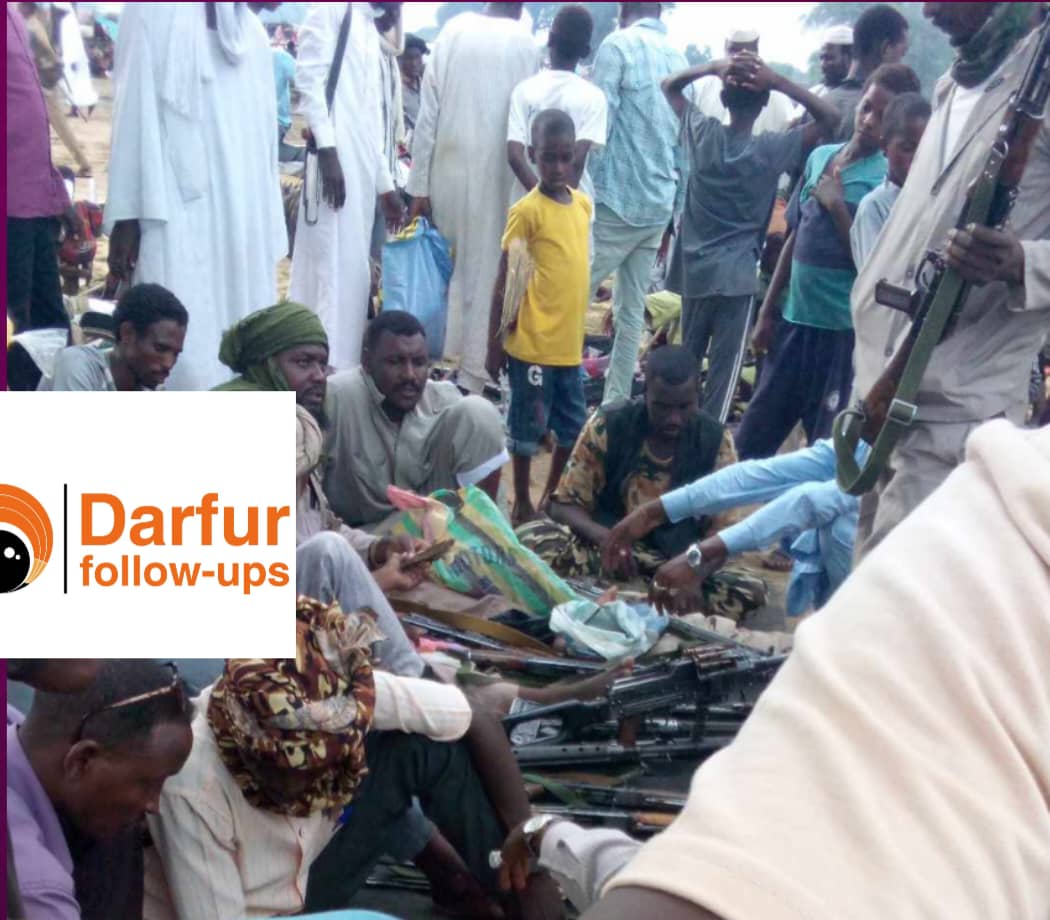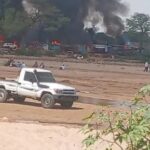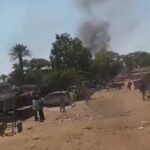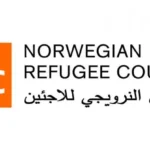Investigation: darfur follow ups
“I am young for my age, but I am old with my weapons.” The child “Nimir” always begins his speech with these words. His mother commiserates with him when we meet her, her eyes filling with tears, and she says that the idea of weapons for me was an indication of a death that I know. I lost my husband in a tribal war, and my son (Nimir) was four years old.
Naira lost her Son 7-year-old in a verbal altercation in a local arms market in South Darfur
She wanted him to go to school like other children in the village, but he chose to leave school at an early age after he graduated to the seventh grade of middle school. However, the school had no teachers and no other classroom to go to, and his peers had motorcycles and Kalashnikov weapons. “They show it off on occasions and participate in battles when the village is attacked or their livestock are stolen.
He left school for his other cousins and got involved in working in the village market as a cigarette seller, then he moved on to selling “Tramadol” and then trading arms and drugs together between Central Africa and Sudan until, in two years, he became a drug and weapons supplier from Central Africa and became known as “Nimir” for his ferocious behavior acquired from the profession. He does not know or recognize the law. According to him, his gun is the only guarantee of his survival
Active cross-border arms trade markets
The (Al-Morain) market is the largest and most famous market in Rehead Al-Berdi, which is located in the far southwest of South Darfur state, and where machine guns, Russian rifles, sniper weapons and their accessories are sold openly among crowds of men, women and children.
According to Nimir, the price of one machine gun ranges between (2) million and a half to (2) million Sudanese pounds, depending on the quality of the weapon, while the price of a Kalashnikov ranges between one million and 200 to one million Sudanese pounds.
On the same level, “Hasania” said that her daughter was killed in the (Al-Morain) market while she was walking around selling household supplies as a result of testing a weapon from one of the buyers, who gave the seller permission to test the weapon on that girl if he did not believe that it worked well. According to an eyewitness, the seller told the buyer “ Jariba” in “ Ambayia” (it is a name given by Arab tribes to women from African tribes), that , “Jariba” word mean test it in this slave, and her soul is not worth anything.
The arms markets in Rehead Al-Berdi locality are supplied from several outlets, the most important of which is the Central African Republic, in which the Russian Wagner Company and the Seleka movement are active. And by the nature of the region, as a border geography between Sudan and Central Africa, many of the region’s youth are soldiers with the Seleka movement, which facilitates the process of movement between the two countries during the fierce campaign carried out by Wagner in Central Africa, which was brought in agreement with the President of the Central African Republic (Touadera) for the purpose of fighting and eradicating the Seleka movement, the majority of the soldiers fled back with their military equipment to Umm Dafouk, Rehead Al-Berdi and Tulles instead of the weapons that were looted from West Darfur and khartoum , so the region became almost a meeting place for small arms dealers.
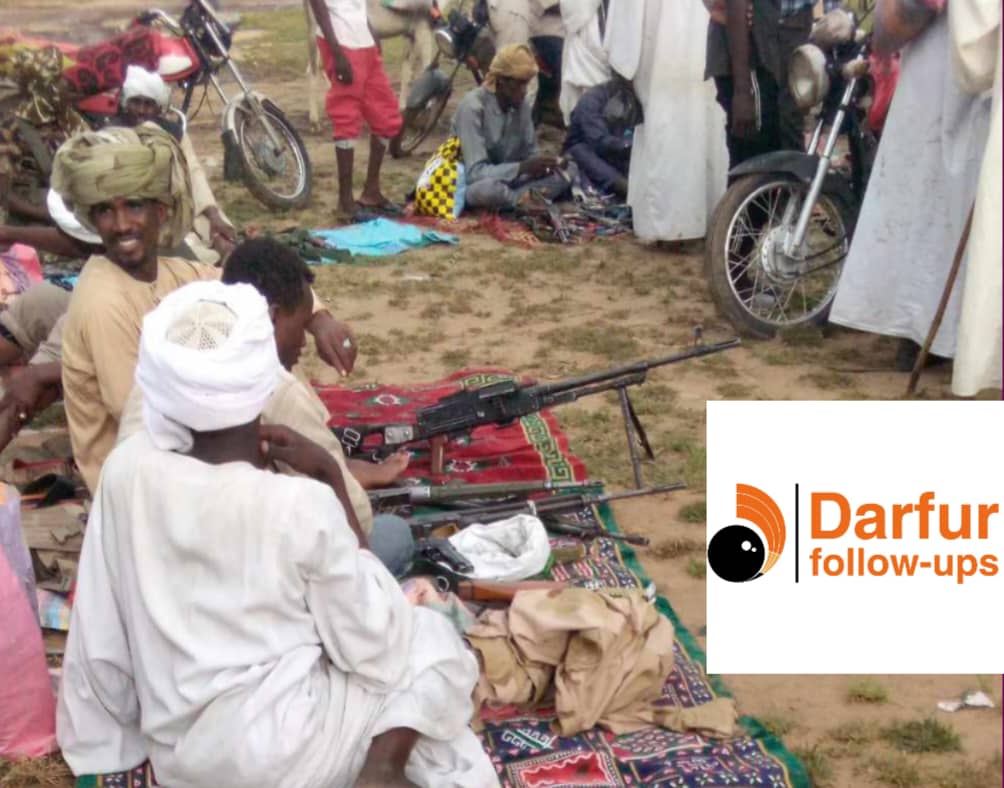
In complete harmony with the Joint Forces and the Sudanese Armed Forces in smuggling weapons from Central Africa to Sudan via commercial trucks, they pay one million francs CFA for the shipment to pass until it reaches the (Aburdi) area of Rehead Al-Berdi locality. Receiving weapons in Central Africa comes to them via motorcycles in the Kumbal area .East of Bria State in Central Africa, it is then shipped to Sudan in bags of coffee that officially enter Sudan.
(S.M.A.), one of the actors gathered in the region, says that after the April War, the features of the region changed after the Rapid Support took over the leadership of the 63rd Infantry Brigade, where everything prohibited became available and permitted, including the killing of young people, the drug and sex trade, especially weapons, and he added that markets were created to sell weapons. And ammunition in the east of Al-Marin market. Each of the three markets specified the types of weapons offered for sale.
The flow of illicit weapons.
The child “Nimir” had not heard of international agreements on the arms trade. He only knew that he was working outside the authority of the state, as illicit arms flows on the African continent play a major role in fueling conflicts in many African countries, from petty crimes to rebellion and terrorist activities, especially illicit small arms and light weapons. On national security, human rights, opportunities for sustainable development, and the threat to security and peace in African countries, where civilians own approximately 80% of light weapons, including militias, armed opposition movements, and terrorist groups.
These weapons are classified in the Arms Control Protocol into two categories: small arms and light weapons, which are firearms, such as pistols and light machine guns, as well as mortars and rocket-propelled grenades, which have become the most widespread preferred weapons in most regional conflicts, especially Darfur currently, where The illicit trade in small arms is a global phenomenon but is particularly concentrated in areas of armed conflict. Such as darfur province
Some statistics also indicate that there are 100 million small arms available in Africa, especially in the countries of the Horn of Africa, the countries of the violent belt in north and Central Africa, and some regions of West Africa. Guns are part of the culture of some African countries, including Somalia, Sudan, and the Congo, and most individuals own a rifle. Mostly Russian Kalashnikovs and AK47 , “There are open markets to buy it, as its price is similar to the price of food supplies.
The major arms manufacturing countries (the United States of America, China, Russia, France, and Germany) take the territory of the African continent as a major center for the manufacture and distribution of their products, while most of the foreign factories involved in the illicit arms trade are located in (Uganda, Cameroon, Kenya, and Nigeria). , and Zimbabwe), and Israel has recently played a role in supplying African countries located in conflict zones with illegal weapons, which reach the hands of terrorist groups under the name of military aid to fan the flames of war in Africa.
On the other hand, the conventional arms industry is concentrated in 11 countries out of 54 African countries, of which ammunition and small arms represent a production value of up to 16 million dollars annually, and there are no clear data about the arms trade on the African continent, as it enjoys a degree of secrecy even in legitimate deals, and in some Cases: The manufacturing capabilities of companies may be uncertain, as each country’s companies are distinguished by the production and assembly of a specific product – for example – (Congo, Burkina Faso, and Zimbabwe) each produce small arms and ammunition, as do (Algeria, Ethiopia, Sudan, Tanzania, and Kenya). (Zimbabwe) transfers ammunition manufacturing technology. (Ethiopia and Nigeria) are distinguished by the licensed manufacture of small arms and light weapons. (Ghana) is distinguished by the artisanal manufacture of small arms, while (South Africa) is characterized by the development of local weapons.
Small arms dealers forum
The arms trade process is active across the border areas by small merchants who work on distribution in an elaborate and rapid manner. “Darfur Follow-up” conducted an exceptional interview with two small merchants, one of whom is nicknamed “Nimir” and the other is nicknamed “Nar Maitah.” They work in a coordinated, fast and accurate manner despite They are young, but they always say, “If you want to become a man and have your say, you must collect money, regardless of the means or method, even if it costs you to kill people.”
The 17-year-old child (Nar Maitah) mentioned that they set off from Rehead Al-Berdi on motorcycles to the( Andaha) area in CAR to buy gold and silver, but they mainly buy weapons from ordinary individuals, merchants and middle-class brokers until they are able to meet foreigners which means white men who own the goods themselves, but it was One meeting during the night in the area of (Trongolo), where it was the first and last meeting until my meeting with them, where (Nimir) mentioned that in this deal they did not pay cash to the merchants and that they did not buy weapons, but only explosive bombs (horns) according to their facilitation of the matter, and he mentioned that they handed over to the seller 470 grams of gold and 2,000 grams of silver in exchange for 111 pieces of Russian-made explosive horns and 25 pieces of Kalashnikov weapons and some other stuff . They showed me one to see, but they did not allow me to touch it. Nimir continued, saying that this was a quick operation that took four days from Rehead Al-Berdi to Andaha then Trongolo in republic of central Africa Then back to Nyala.
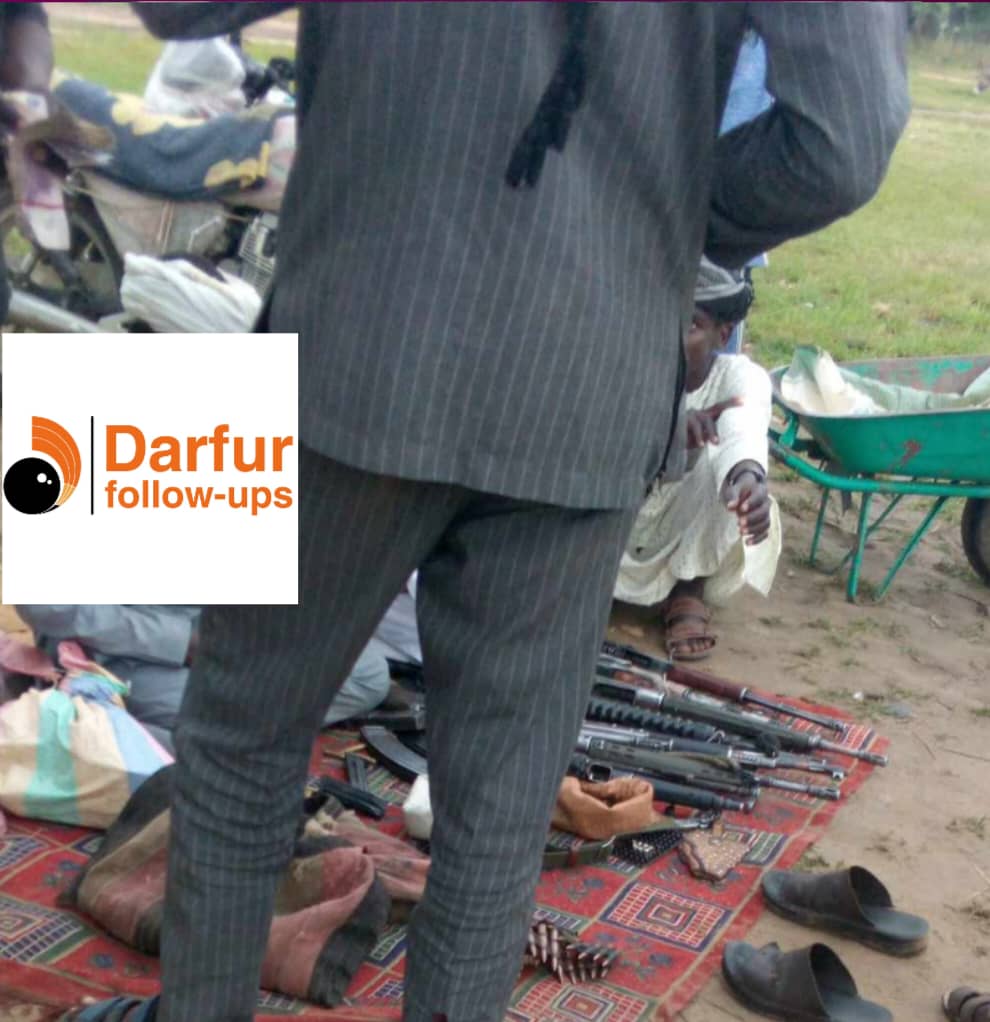
“Nar Mitta” mentions that recently, with the fall conditions, they have been heading towards Nyala to buy weapons from a market in northern Nyala, which he did not name, where Kalashnikov weapons and ammunition of various types are available to them to take to the village markets. He says with a sarcastic laugh, “My brother, Al-Baqara are coming , are you sitting here?” Until this period, they are targeting shepherds because they are the people who sell the most weapons. He said, “People, in turn, have to have supplies, brother,” meaning that the shepherds need military supplies in order to return to the jungles of Africa with the end of the fall season.
The arms trade is active in new markets in Darfur and is claiming the lives of children
The arms market in Nyala, which (Nar Mitta) refused to reveal to us, represents one of the worst arms selling markets in Darfur, as it brings together all small traders, especially from Central, West and South Darfur, for the purpose of buying, selling, or sometimes trading. Tramadol pills for weapons and vice versa often occur, but what happens? It is more dangerous that the majority of small merchants are children who have not yet reached the age of 18. They come from villages and localities outside the city of Nyala for the purpose of shopping, according to “Sinnak,” who accompanies him and the Tramadol as goods to Nyala and then returns to Umm Labasa, west of Nyala, says “Sinnak.” Circumstances made us work in order to collect more money. He said, “The words of a man who are held back have been on our tongue for a long time, and here he means that the richer you are, the more your words will be heard and the more you will have a voice among the people.”
International conventions to limit the illicit arms trade.
The United Nations Arms Trade Treaty recognizes that peace, security, development and human rights are among the pillars on which the United Nations system is based, and the pillars on which collective security is based. Article 2 of the agreement stipulates the definition of conventional weapons to include (battle tanks, armored combat vehicles, and systems Large-caliber artillery, combat aircraft, attack helicopters, warships, missiles, missile launchers, small arms and light weapons.
While the Treaty recognizes the legitimate political, security, economic and commercial interests of States in the international trade in conventional arms, it regulates the conduct of the trade in conventional arms by States Parties, whether by import, export or brokerage, and directs Article 62 of the Charter of the United Nations, which seeks to encourage the establishment and maintenance of international peace and security with the least Diversion of the world’s human and economic resources into weapons, stressing the need to prevent and eliminate the illicit trade in conventional weapons and prevent their diversion into the illicit market, or for the ultimate purpose of their unauthorized use by unauthorized persons, including their use in committing sterilization. Ethnicity, genocide, and terrorist operations.
In accordance with the vision of Agenda 2063 for Africa, to silence the guns by the year 2020 on the continent by working to contain disputes and conflicts within the continent, and that everyone who has an issue on the continent be dealt with through negotiations and peaceful ways to resolve it, especially in light of the pursuit of developing forces. Africa in a large way, and that there should not be any presence of peacekeeping forces from outside the continent. However, the “2020” agenda to silence the guns did not achieve its goals in eliminating the illegal spread of weapons on the continent and conflicts, conflicts, civil wars and armed groups by presenting negotiations as a solution to these problems.
The African Union has initiated the Nouakchott and Djibouti operations to enhance security cooperation in the Sahel and East Africa regions. Despite the efforts made at various levels, illicit arms trade and proliferation continue to constitute a serious security threat on the African continent, from the Horn of Africa to the Sahel and Basin regions. Lake Chad, where violent extremism poses a new set of challenges to security, stability and development on the continent, and threats are escalating with expectations of ISIS fighters fleeing from Iraq and Syria to armed groups on the African continent, especially “Boko Haram” in Nigeria, and “Al-Shabaab” in Somalia. And other extremist groups in Libya and armed militias in Darfur and Central Africa.
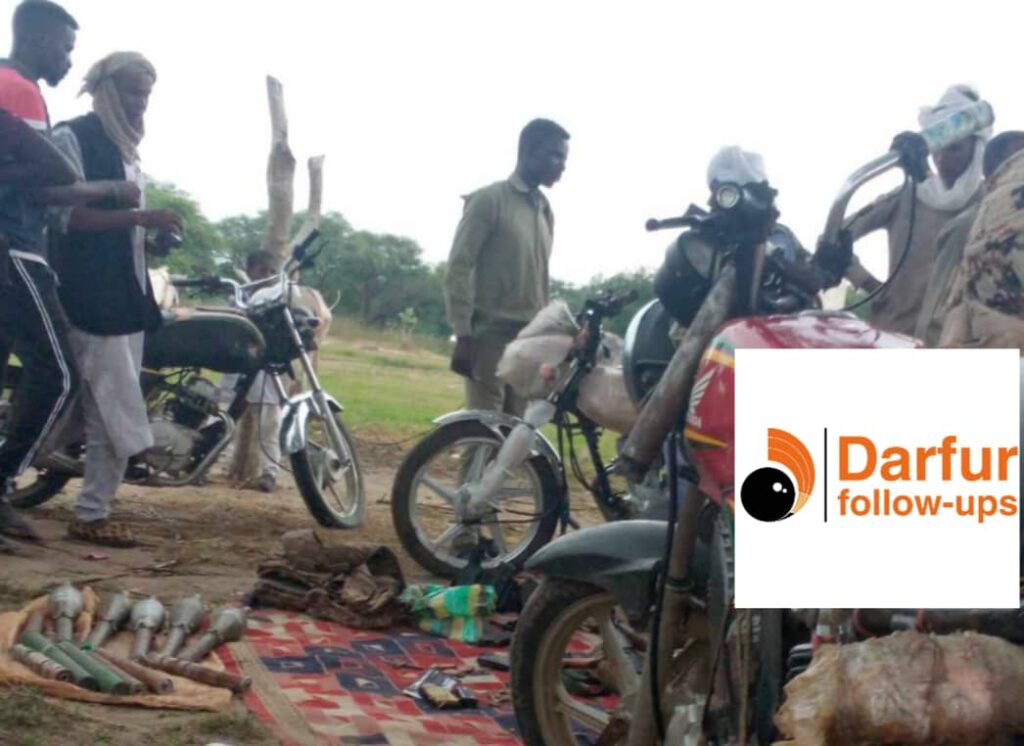
Deals are enough to solve the problems of poverty in the world.
Arms trade deals are among the most expensive and popular deals in the world due to local and international wars and conflicts, most notably conflicts in the East and Middle East, and civil wars in Africa. Experts estimate that spending a small portion of the money allocated to purchase weapons is sufficient to solve the problems of poverty and unemployment in the world, but it is difficult to estimate. The volume of trade in the arms market, and data on American, Russian, German, Chinese and other arms exports indicate that it is in the tens of billions annually.
According to a Deutsche Welle report on the arms trade in the world published last June, studies conducted by the Small Arms Survey Project found a large and diverse group of Chinese weapons, such as assault rifles, heavy and multi-purpose machine guns, rocket-propelled grenade launchers, automatic grenade launchers, and anti-tank missiles. And various types of missiles and small arms ammunition. Some press reports published at the beginning of this year indicated that the process of spreading and trading weapons among civilians has regional connections that cross the Sudanese borders.
Groups are active in trading and smuggling weapons to Central Africa and selling them to civilians. They target the markets of villages located in Sudanese lands and militating them to fight for the Seleka movement in Central Africa.
According to the statements of an eyewitness about the campaign carried out by the Rapid Support Forces in the areas of Umm Dokhun, Um Dafouk, and Abu Jaradil, these forces arrested groups active in the arms trade between Sudan and Central Africa, and after investigation it was confirmed that they were working under the protection of the leadership of the 63rd Infantry Brigade, in rehead Al-Berdi, which was training the forces. The Protectors of the Homeland, led by the 63rd Brigade in rehead Al-Berdi, are sent to areas on the border with Central Africa for the purpose of creating an armed conflict there, and the small groups that are active in the arms trade must smuggle weapons to Central Africa and sell them to civilians. Some of the village markets located in Sudanese territory are also targeted to sell weapons to civilians. And mobilizing them to fight for the Seleka movement in Central Africa.
The same groups active in the arms trade have turned the clock on their movement, targeting local markets in South Darfur, such as the Rehead Al-Berdi area, Al-Mashaqa refugee camp in Um Dafouk locality, and the Um Dafouk and Abu Nono areas, where weapons seized from the joint forces in Umm Dafouk and the leadership of the 63rd Brigade, in rehead Al-Berdi, are sold.
An arms dealer in Darfur: We sell weapons to citizens for the purpose of encouraging them to protect themselves.
According to a statement by one of the ammunition and weapons dealers in the areas south of Rehead Al-Berdi, claims that they sell weapons to people for the purpose of encouraging them to protect themselves and their property. He said, “It has become easy to kill you and rob and plunder your property if you do not own a weapon.” The type of weapon varies with the size of the individual’s personal property. Someone buys it. 5 Kalashnikov weapons and 700 machine gun rounds with 300 rounds of ammunition to protect his family’s property, including livestock, farms, and villages.
Conditions remain as they are and are getting worse day by day in light of the complete absence of any authority that can protect civilians from the danger of weapons. Also, the local authorities that were formed after the war in these areas from mayors who have a direct relationship with arms dealers are issuing work permits for young people involved in the trade. Weapons are the understanding of the state and its entire institutions and no one else.
Control of conventional weapons:
Oversight consists of the formation of government committees whose tasks are to monitor import and export operations, inspect the transfer of conventional weapons, and submit reports to the United Nations Register of Conventional Arms as a form of transparency for armament operations, confront illicit arms trade operations, and take into account the application of standards, such as human rights, regional conflict, the risk of diversion of arms, and Council resolutions. International security and national interests: During the evaluation of requests for arms export and transfer, and in accordance with the Arms Trade Agreement (United Nations), the voluntary and effective role played by governmental organizations, the industrial sector, and regulatory bodies, including civil society, in raising awareness of the subject of the treaty, in supporting its implementation, is recognized.
The Arms Export Control Committee of the South African Ministry of Defense played a prominent role in this matter, as it refused to complete the sale of military trucks to some Arab countries, which represent a third of South Africa’s arms exports, after they refused to inspect their facilities by South African officials to verify their compliance. It is one of the most important clauses of export documents that obliges foreign customers to pledge not to transfer weapons to a third country.
While the absence of a supervisory role in Russia made it the first exporter to Africa in terms of ease of procedures and non-restriction by laws regulating human rights, and this is due to the lack of pressure from the regulatory authorities to track arms sales, as Russian defense industries are secret and the law does not require companies to report arms exports, and in recent times Arms smuggling operations were concentrated in Libya and Sudan, and it was difficult to control the entry of these weapons, given the presence of conflict areas there. The spread of these weapons also threatens the work of UN missions in monitoring and monitoring cases of destruction in conflict areas.
International observers: The marginalization of Sudan within the corridors of the African Union and IGAD provided an opportunity for international arms dealers to create local markets to sell weapons.
In the context of oversight, the United Nations can play an important role in pressuring the country that manufactures weapons by restricting the export of its weapons and ammunition products to Africa. Governments in Africa must also address the defect in their local control systems and provide security for civilians so that they do not have to buy weapons for protection. themselves, and it is necessary for the African Union and IGAD to play a pivotal and effective role in dealing with the issues of arms proliferation in Africa, and for Sudan to pay special attention, especially since the situation in Sudan is going through the worst period it has witnessed since the departure of the British colonialists from it, as it has provided opportunities to marginalize the reality of Sudan within the corridors of the African Union and IGAD. Spaces for international arms dealers and creating fertile ground for creating local markets for selling weapons.
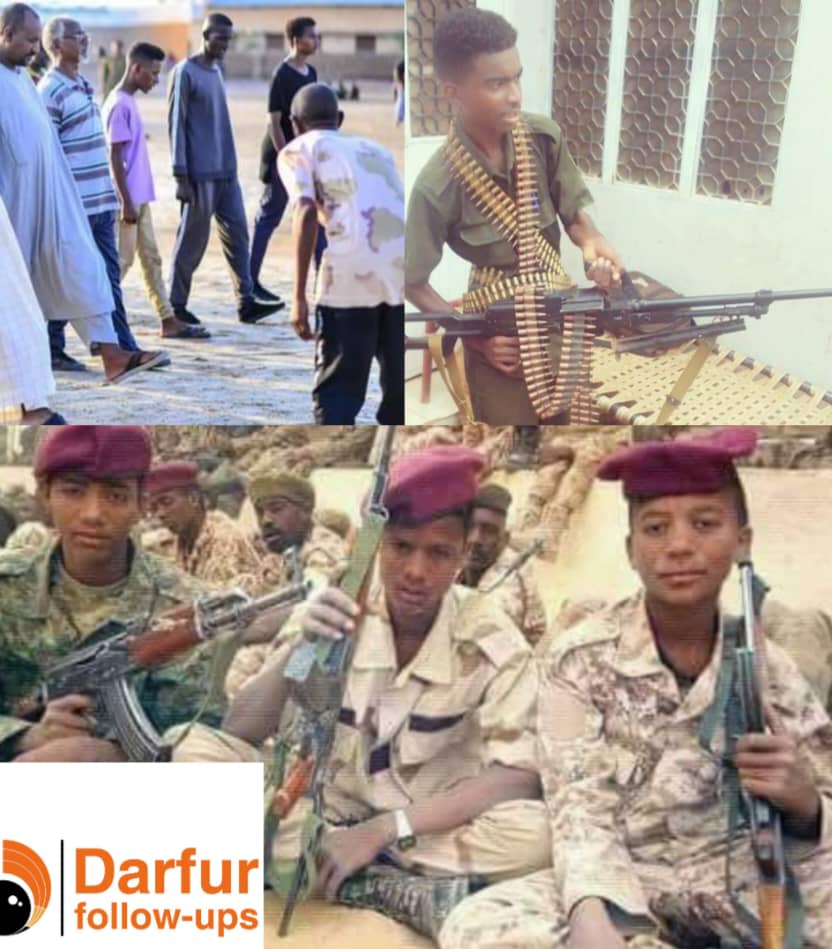
The participation of children in wars is still ongoing, and has even become more widespread in recent years due to the widespread conflicts, especially in Darfur, where the Rapid Support Forces, the Sudanese army, and other armed militias resort to recruiting children to use them in various military and logistical missions as fighters, and what happened in the April 15 war. A good witness is that many social media platforms circulated videos and pictures of children of soldiers belonging to the Rapid Support Forces driving vehicles during the recent attacks launched by the Rapid Support Forces on the armored
Command Pictures and videos of children in alert centers of the Sudanese army were also shown.
Over the past years, there has been a state of lack of respect for the law in general, even from regular agencies, so what the situation turned into during this war is very natural, and according to the state of non-statehood in Sudan, the presence of people recruited into regular and irregular forces, and their ages are less than 18 years. It has become a normal thing, which represents a clear violation of child protection laws, as the door to forgery of various official documents is wide open.
The crisis of arming children is an injustice that has lasted for decades, but there are children who chose to take up arms spontaneously in order to avenge the killing of their family members, according to their accounts.
Wars and armed conflicts may deprive children of the most basic human rights, such as the right to education, security, and living within the care of their families.
And the right to health, education, and life. Therefore, many of the children we met are looking forward to returning to school, and to shed sufficient light on resolving this problem, provided that the political will is available among the various parties to the conflict in Sudan, to resolve this crisis that is closely linked to the future of the children.

